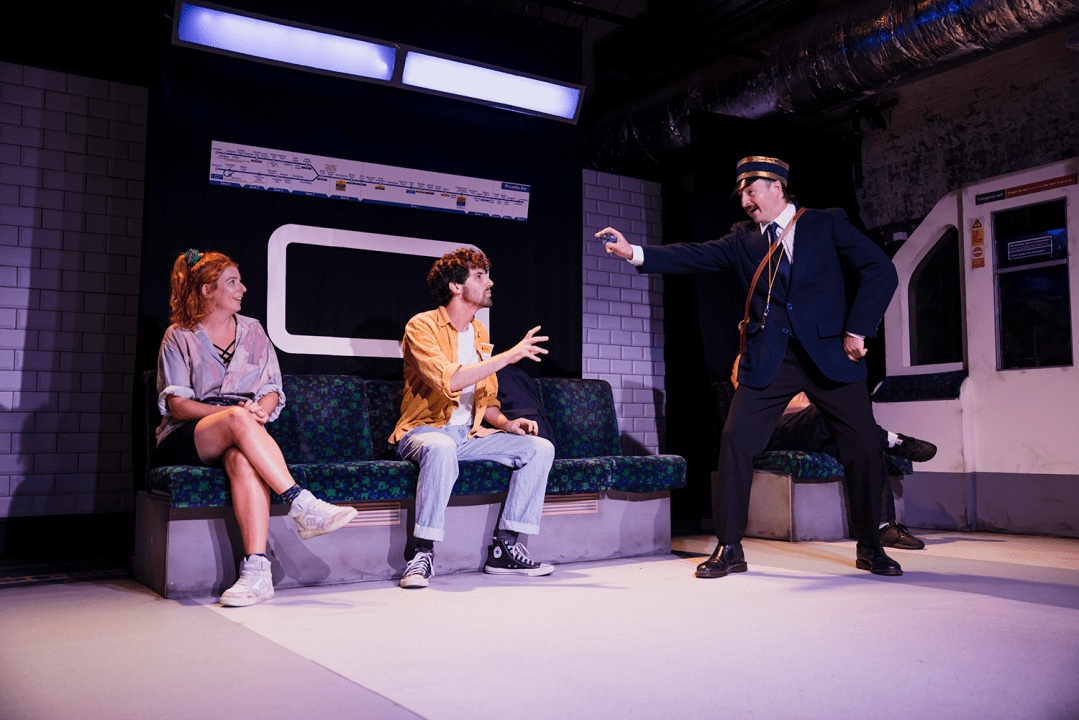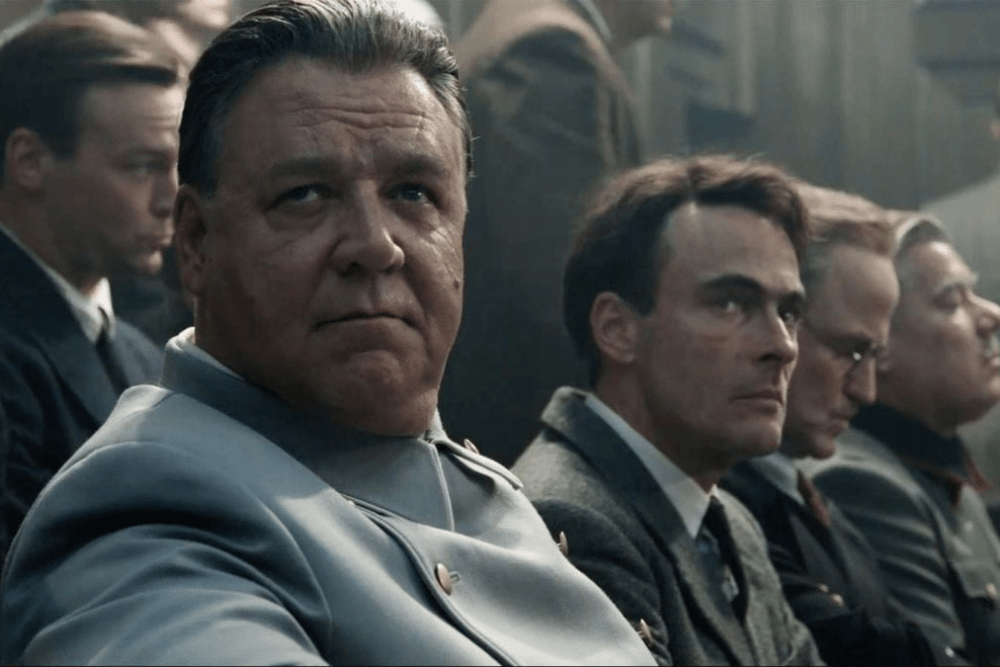The Turbine Theatre is a newish venue beneath the railway arches of Grosvenor Bridge in Battersea. The comfy auditorium is furnished with 94 cinema seats and the only snag is the scent of mildew clinging to the plasterwork. Overhead, the rumbling commuter trains create the perfect soundscape for Cockfosters, a zany rom-com set on the Tube.
Two travellers meet by accident on a Piccadilly line service departing from Heathrow Terminal 3. James is a nerdy public-school reject who spots a fellow traveller, Victoria, struggling to shift three monster suitcases onto the train. Obeying Tube etiquette, he makes no attempt to help her and they sit in adjoining seats without acknowledging each other. Beside them are two passengers engrossed in royal biographies. So far, so typical – although book-reading is now a rarity on the Tube.
The show is marred by a cast who mistake screaming for comedy and hysterics for burlesque
Then the script goes awry. James bumps into an obnoxious schoolmate and they exchange news as if catching up in a Sloane Square pub. The schoolmate impersonates Rik Mayall and asks Victoria for her contact details but she tricks him by giving him the number of a junk-food delivery service. Why has the journey turned into a social event for English toffs?
James grows philosophical and tells Victoria that London has lost its allure. ‘I’m done with London. I’m Lon-done,’ he jokes. Two noisy Texans burst into the carriage and unfold a large map – a map! – which they peruse while loudly mispronouncing the names of landmarks in the capital.
The script aims very low but occasionally it delivers a decent gag. James and Victoria parody Tube advertisements which offer to cure hair loss, fatigue, and bloating – but nothing else. There’s a poignant scene in which a woman of 50 is offered a seat and realises, for the first time, that she looks elderly. Another passenger reveals that Mansion House is the only Tube station whose name includes all five vowels. Great for quiz-show fans.
Other pot-shots at comedy fail because they rest on falsehoods. A sadistic Tube guard gets his kicks by swearing at the passengers through a megaphone. In real life, Tube staff treat passengers as if they don’t exist for fear of antagonising the few who are violent. Apart from the odd giggle, this is a threadbare show marred by an overactive cast who mistake screaming for comedy and hysterics for burlesque.
Utoya is a beautifully crafted short play about the atrocities committed by Anders Breivik in 2011. After detonating a car bomb in Oslo, killing eight people, he rampaged across the island of Utoya and executed 69 youngsters at a socialist summer camp. The story is told through the eyes of six people indirectly involved with
the massacre.
Inga and Petter are Breivik’s rural neighbours who become suspicious of his huge fertiliser stockpiles. He grows no crops so why does he need chemicals to treat the soil? Petter wants to investigate but Inga orders him to ‘be a good Norwegian’ and mind his own business. When Petter hears of the Oslo bomb he leaps to the wrong conclusion and blames a local migrant. ‘I’ll go and beat up the Moroccan,’ he says in a matter-of-fact way. ‘They’re all the same.’
Near the island of Utoya, two hesitant officers, Alf and Unni, are told that a gunman is murdering the campers. But they have very clear orders: stay put and await the arrival of a specialist firearms squad. Unni wants to commandeer a fishing boat and ambush the killer but she’s overruled by Alf, who is desperate to save his own neck. He uses the excuse of ‘procedural discipline’ to mask his cowardice.
This tightly balanced moral dilemma is made murkier by the officers’ love-hate relationship and by a previous dispute in which Alf won a petty victory over Unna. But his triumph is short-lived. After the crisis, they learn that Breivik surrendered as soon as officers in uniform appeared on the island. Alf’s self-serving hesitation led to many deaths.
The most gut-wrenching story involves Gunnar and Malin, who sent their daughter to the summer camp as a punishment for wasting money on cosmetics. Her parents endure a harrowing day-long wait to hear if she is among the dead. At the same time their anguish affects the deeper problems in their troubled marriage.
This fascinating, multi-layered play by Edoardo Erba is crisply directed by Sarah Stacey and beautifully performed by Kate Reid and Marco Young. More actors are needed though. The script calls for six characters and a range of four or five locations, and the constant shifts are a little hard to follow. Clearer signposting on stage might have helped. The intense action is played out around a kitchen table which is split in half by a forked crack to represent the horrors of broken lives. An inexpensive solution – but it works.









Comments